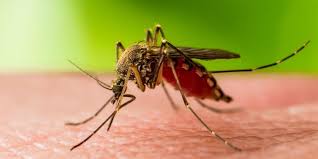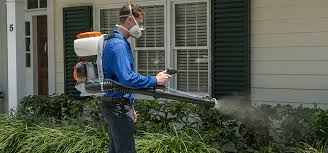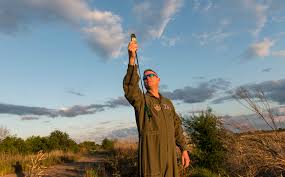Why Mosquito Control is Important
General Information about Mosquitoes
Almost everyone has had an unpleasant experience of being bitten by a mosquito. Mosquito bites can cause skin irritation through an allergic reaction to mosquito’s saliva – this is what causes the red bump and itching. But a more serious consequence of some mosquito bites may be transmission of serious diseases and viruses such as malaria, dengue virus, Zika and West Nile virus, which can lead to possible and potentially deadly effects (such as encephalitis, meningitis and microcephaly). Read more about diseases carried by mosquitoes.
Not only can mosquitoes carry diseases that afflict humans, but they also can transmit several diseases and parasites that dogs and horses are very susceptible to. These include dog heart worms, eastern equine encephalitis and West Nile virus.
There are about 200 different species of mosquitoes in the United States, which live in specific habits, exhibit unique behaviors and bite different types of animals. Despite these differences, all mosquitoes share some common traits, such as a four-stage life cycle (eggs, larvae, pupae, adult).
Different species of mosquitoes prefer different types of standing water in which to lay their eggs. The presence of beneficial predators such as fish and dragonfly nymphs in permanent ponds, lakes and streams helps keep these bodies of water relatively free of mosquito larvae. However, portions of marshes, swamps, clogged ditches and temporary pools and puddles are all prolific mosquito breeding sites. Other sites in which some species lay their eggs include:
- tree holes,
- old tires,
- buckets,
- toys,
- potted plant trays and saucers,
- plastic covers or tarpaulins and even
- places as small as a bottle caps!
Some of the most annoying and potentially dangerous mosquito species, such as the Asian tiger mosquito, come from these sites.

Why Do We Need Mosquito Control?
Mosquito Management’s Role in Protecting Public Health
There are really only two reasons to control mosquitoes; to avoid nuisance biting, and to preclude the spread of mosquito-borne disease. Everyone recognizes that mosquitoes can be a terrible blood feeding nuisance, but most people do not realize the magnitude of the health threat that they represent. Some of the world’s most deadly diseases are carried and transmitted by mosquitoes. It is estimated that up to a million people die every year from mosquito-borne illness with many countries around the world ravaged by malaria, yellow fever, and dengue-hemorrhagic fever. For several years, West Nile virus, several types of encephalitis and dog heartworm have been the primary mosquito-borne diseases in the U.S. However, more recently, Zika virus, Dengue fever, and Chikungunya have emerged as serious threats to human health.
Mosquito-borne encephalitis in the U.S. is prevalent in several forms and is geographically wide-spread. Encephalitis is an inflammation of the brain and central nervous system, and is characterized by a high to moderate mortality rate, with some survivors left with permanent physical and mental disabilities. West Nile virus, which in severe cases can cause encephalitis, entered the U.S. along the east coast in 1999 and has had serious ongoing implications for the rest of North America as it has spread across the country and remains a threat.

Mosquitoes: The Most Dangerous Animal on Earth?
Mosquitoes infect humans with the Zika virus, yellow fever, dengue, malaria, and other diseases. Why are they so dangerous and what’s being done about it?
Mosquitoes have bedeviled humans for centuries, spreading disease and death to millions. Today, the latest plague they bring is the Zika virus.
Mosquitoes are perhaps the most dangerous animals in the world
They are the primary vectors for major human diseases such as yellow fever, malaria, and dengue fever, which together infect hundreds of millions of humans worldwide and kill millions each year.”
The World Health Organization, he added, reports that more than 50 percent of the world’s population is presently at risk from mosquito-borne diseases.

Controlling mosquitoes
steps to mosquito-free living
Mosquitoes can make gardening uncomfortable and turn porch sitting into a chore. But by following these seven simple steps, you can safely reduce mosquito populations, have a more enjoyable summer, and protect yourself from diseases that mosquitoes help spread.
Reduce the number of breeding sites on your property.
Female mosquitoes lay their eggs in standing water. The eggs hatch into larvae about three days later, and about 12 days after that, adults emerge and fly away. Considering that each female can lay up to 400 eggs and the life cycle is complete in about two weeks, you can see why mosquito populations can increase so quickly. Reducing the amount of standing water around your home will minimize breeding sites and reduce the number of mosquitoes. Some places to look include clogged rain gutters, tree holes, potholes, old tires, discarded cans and containers and the saucers of your outdoor flower pots.
Kill mosquito larvae where the insects breed.
If you have standing water you want and enjoy, such as a birdbath, one option is to change the water every week. In water gardens or ponds you can use Mosquito Control Rings which contain a naturally occurring bacterium that kills mosquito larvae for 30 days.
Remove algae from ponds.
Mosquito larvae feed on algae and other small organisms that live in water. Oxygenating plants, and a Aquasphere Pond Cleaners will help keep ponds and water gardens clear.
Use a mosquito repellent in your outdoor living space.
While the first three steps will reduce the number of mosquitoes in your yard, they won’t eliminate them. That’s where safe, natural mosquito repellents come in. Check out the lineup in our Natural Mosquito Repellents category.
Exclude mosquitoes from your home.
Keeping windows and screens shut to exclude mosquitoes seems straightforward enough, but it can be hard to do. The ingenious Hands-Free Bug Screen helps by automatically shutting behind you as you walk through the door. Light attracts mosquitoes and other insects, so after dark you should also minimize outdoor lighting.
Increase the number of mosquito predators in your yard.
Bats and swallows love to eat mosquitoes. Install a shelter, like a bat or birdhouse, to help attract predators to your yard.
Prevention
Repellent is an effective method for keeping mosquitos at bay.
Preventing mosquito bites is always more effective than trying to treat them, given the potential seriousness of the diseases that can transmit during the bite.
The Environmental Protection Agency (EPA) advise that mosquitoes need water to breed. Removing sources of standing water around the home and garden can reduce the number of mosquitoes in the area.
The following steps can help prevent bites:
- Use screens and netting.
- Cover up the skin when outdoors.
- Avoiding wooded and grassy areas.
- When planning to be in mosquito-dense areas, avoid bright clothing, perfumes, and scented beauty products.